David Bleckley
Librarian-in-the-Loop: A Natural Language Processing Paradigm for Detecting Informal Mentions of Research Data in Academic Literature
Mar 10, 2022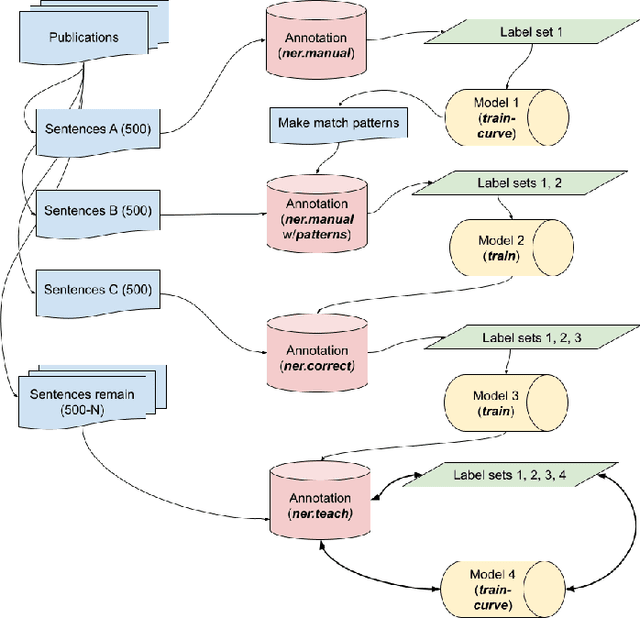
Abstract:Data citations provide a foundation for studying research data impact. Collecting and managing data citations is a new frontier in archival science and scholarly communication. However, the discovery and curation of research data citations is labor intensive. Data citations that reference unique identifiers (i.e. DOIs) are readily findable; however, informal mentions made to research data are more challenging to infer. We propose a natural language processing (NLP) paradigm to support the human task of identifying informal mentions made to research datasets. The work of discovering informal data mentions is currently performed by librarians and their staff in the Inter-university Consortium for Political and Social Research (ICPSR), a large social science data archive that maintains a large bibliography of data-related literature. The NLP model is bootstrapped from data citations actively collected by librarians at ICPSR. The model combines pattern matching with multiple iterations of human annotations to learn additional rules for detecting informal data mentions. These examples are then used to train an NLP pipeline. The librarian-in-the-loop paradigm is centered in the data work performed by ICPSR librarians, supporting broader efforts to build a more comprehensive bibliography of data-related literature that reflects the scholarly communities of research data users.
Leveraging Machine Learning to Detect Data Curation Activities
Apr 30, 2021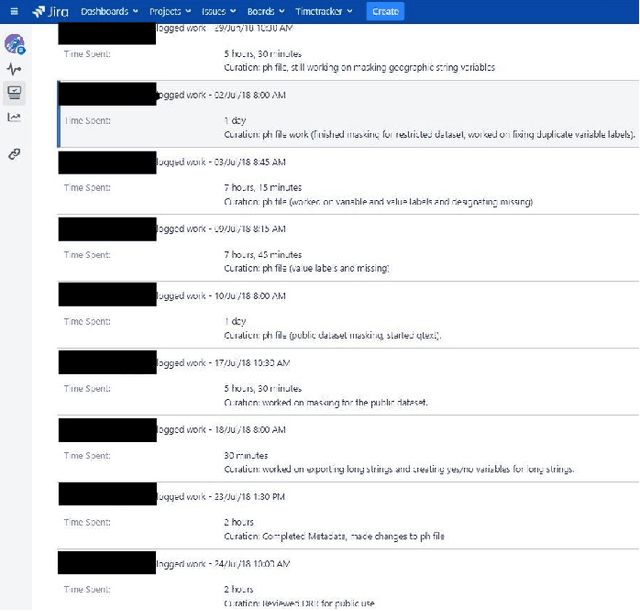
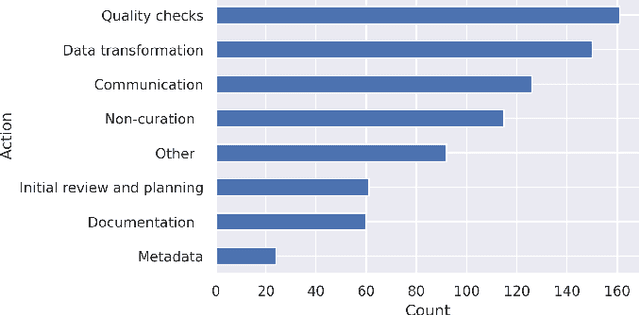
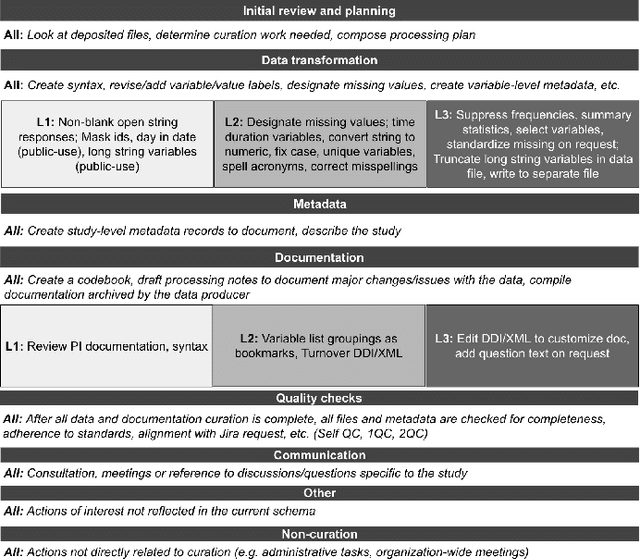
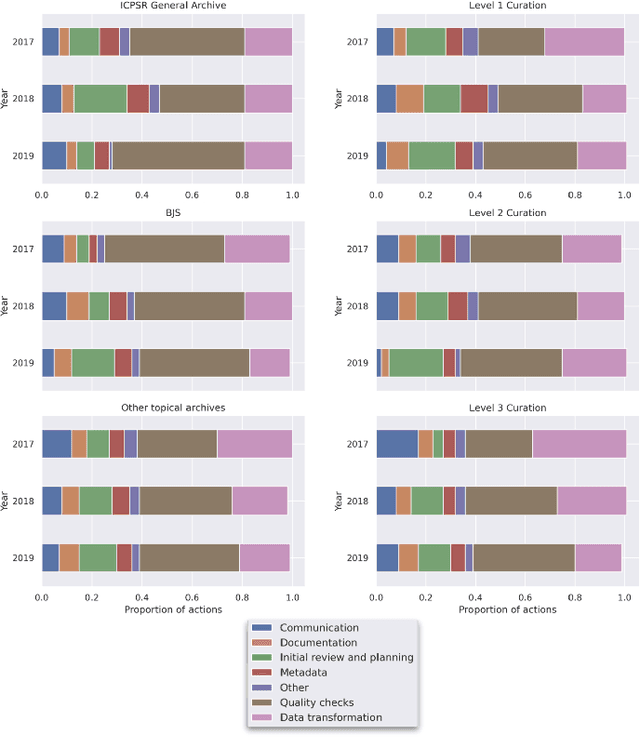
Abstract:This paper describes a machine learning approach for annotating and analyzing data curation work logs at ICPSR, a large social sciences data archive. The systems we studied track curation work and coordinate team decision-making at ICPSR. Repository staff use these systems to organize, prioritize, and document curation work done on datasets, making them promising resources for studying curation work and its impact on data reuse, especially in combination with data usage analytics. A key challenge, however, is classifying similar activities so that they can be measured and associated with impact metrics. This paper contributes: 1) a schema of data curation activities; 2) a computational model for identifying curation actions in work log descriptions; and 3) an analysis of frequent data curation activities at ICPSR over time. We first propose a schema of data curation actions to help us analyze the impact of curation work. We then use this schema to annotate a set of data curation logs, which contain records of data transformations and project management decisions completed by repository staff. Finally, we train a text classifier to detect the frequency of curation actions in a large set of work logs. Our approach supports the analysis of curation work documented in work log systems as an important step toward studying the relationship between research data curation and data reuse.
 Add to Chrome
Add to Chrome Add to Firefox
Add to Firefox Add to Edge
Add to Edge